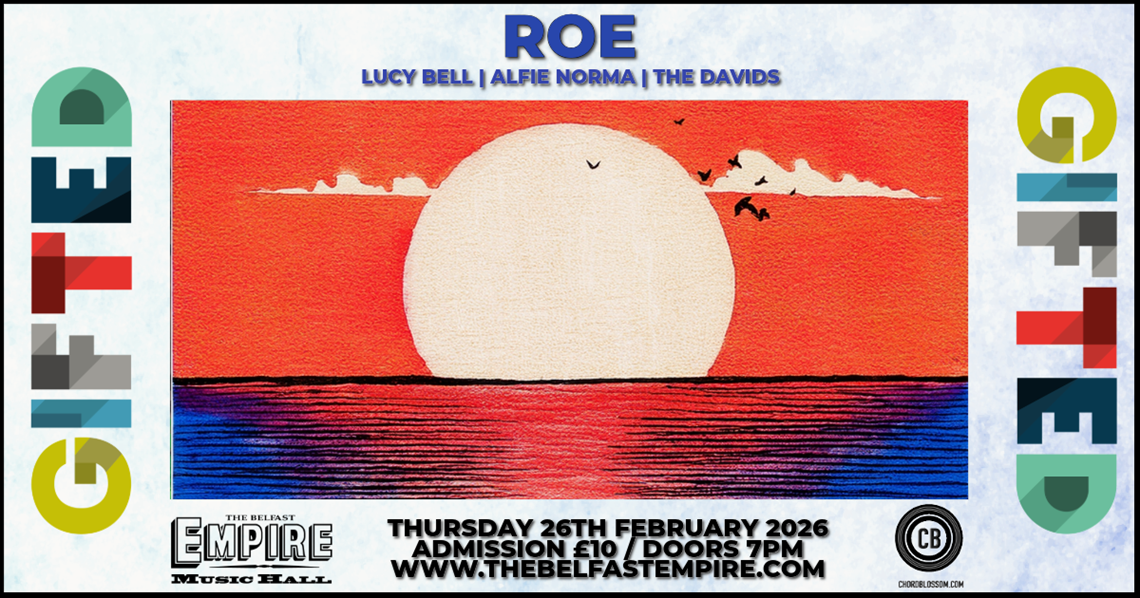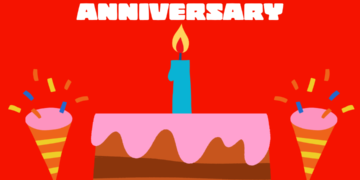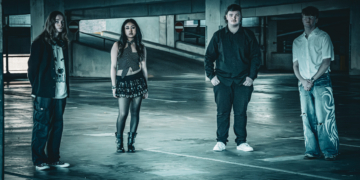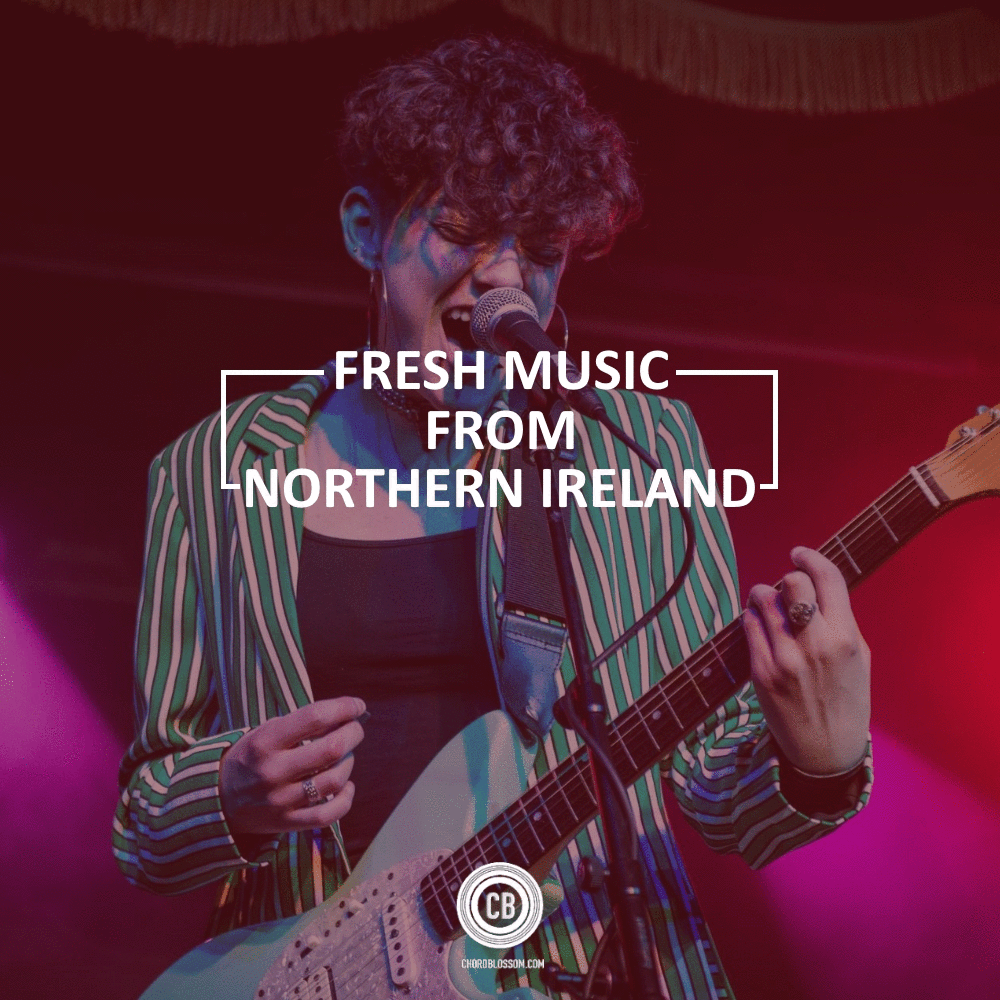The recent death of Robin Brown in Portugal marks the end of an era that is not celebrated as much as it should be.
Involved in running branches of Caroline Music (alongside Kyle Leitch) and Dr. Robert, Robin helped to shape the tastes of manys a music fan in this country for three decades.
Writing on Facebook, Stiff Little Fingers main man Jake Burns paid tribute to him and the milieu that helped create the band:
“…that is really sad news. Along with Kyle, Robin was a big part of Caroline. Both were so enthusiastic about music and genuinely pleased to see you when you walked in the shop, even when you weren’t going to buy anything.”
Elsewhere, Ruefrex singer Allan Clarke waxed lyrical about visiting Caroline being:
“Part of my Saturday afternoon ritual. Into Caroline Music looking for the album’s you couldn’t get in the other stores and if they didn’t have it they could order it. Robin and Kyle were great people to talk to while doing it. Sorry to hear this sad news.”
Time to Be Proud Records owner William Maxwell was much more brief but no less reverential:
“Rest in Peace Robin and thank you for my musical education. Condolences to Robin’s family and friends.”
For a lot of people of a certain age, the two Caroline Music shops that existed in Ann Street was the greatest record shops Belfast ever had. Everyone from Andy Cairns (Therapy?) to Andrew Griswold (The Dangerfields) have talked about picking up seminal records in this establishment that would change their lives. Their impact on the burgeoning NI punk scene cannot be understated. Working there in those halcyon days were Robin Brown, Angus Daye, Kyle Leitch and Keith Thompson.
Interviewed for Guy Trelford and Sean O’Neill’s seminal book It Makes You Want to Spit!: The Definitive Guide to Punk in Northern Ireland, 1977-1982, Kyle Leitch discussed this period.
“I’d been working at Smyths for Records and knew the respected Caroline Music as the only place where I could send customers for anything interesting. No mega stores in Belfast in those days or Internet, and if Caroline didn’t have it, you didn’t get it! The shop was also just around the corner from The Pound, Belfast’s only live venue, which was a Heavy Rock fortress. After getting a job at Caroline I managed to help bands from the London Pub Rock scene, such as the Count Bishops, get gigs there – of course they would always do a P.A. in the shop. I’m sure this made it possible for punk bands to get the odd gig…At some point during the summer of ’76 I seemed to have two types of customers; Dinosaur Rock types who needed to worship huge egos, or those who were into US bands, NY Dolls, Television, Velvets, Iggy, MC5 plus a bit of London Pub Rock. And then it happened…Most of my customers were now in bands and …and could I help? – put a poster up, get a gig etc, and so followed a wonderful period which has provided so many memories for me.”
Christmas 1979 saw another branch of Caroline Music open in Lower Garfield Street and Robin was made manager alongside Paul Mills. Known among certain circles as “the mod Caroline”, it was ostensibly a chart outlet, but the main focus was on 60’s music, be it soul, funk, garage and rockabilly. And with the shops in Ann Street focusing on the punk and alternative movements, all shops were essential visits for the discerning music fan as well as portals into unfamiliar terrain for the uninitiated. Especially as the early 80’s saw an explosion of independent labels releasing records that changed the face of music forever, so to be able to pick these up on a Saturday afternoon while walking through Belfast city centre offered up multiple possibilities that didn’t involve joining paramilitary organisations, as well as getting to see bands like The Long Ryders (who at one point competed with R.E.M for the hearts of indie fans) doing in-store appearances.

Sadly, a move from Garfield Street to Donegall Place in 1985 would spell the end for this period, owing to the focus shifting to being a chart shop first and foremost (presumably in order to justify the place in the city centre). The end result was just another record shop. This Caroline would close within a few years, while the Ann Street branch would carry on until 1990.
In the same year, as part of an attempt to rejuvenate Belfast city centre after two decades of explosions, Virgin Megastores began trading in Royal Avenue and Richard Branson turned up to the opening ceremony. Alongside the already established HMV, it began to dominate the market for music, games and videos in the city (helped, if rumours are to be believed, by having the building rates free for five years).
One thing it did not stock a lot of was vinyl. Speaking to UTV in November 1991, the then Virgin Megastores manager, Stephen Millings, made this abundantly clear:
“The most popular format the customers are asking for is CD’s. This is reflected in the store in that the largest section we have is given over to CD’s…LPs are on the decline. We reflect what’s happening in the marketplace and when customers stop asking for LPs, we reduce our range of LPs as we have done over the last year.”
Of course, there was still a market for wax. It had just gone underground.
After a few years in the wilderness, Robin opened Dr. Robert in Church Lane and teamed up with his old colleague Angus to help him run it. Their differing tastes, evident in both Carolines a decade beforehand, were now under one roof. This advert leaves us in no doubt about their mission statement.

Looking back, it’s clear that the shop opened at an interesting time for music.
In 1991, A Tribe Called Quest helped to define conscious and minimalist hip-hop by adding a jazzier element to their sound on The Low End Theory. Nirvana ushered grunge into the mainstream with Nevermind. The Pixies consolidated their reputation as the masters of the “quietLOUDquiet” dynamic with Trompe Le Monde. Primal Scream took indie music’s fascination with Ecstasy and acid house to its logical conclusion with Screamadelica. The Red Hot Chili Peppers gave us Blood Sugar Sex Magic, catapulting them into mainstream consciousness. Metallica’s move away from their thrash roots into a more streamlined metal outfit was documented on The Black Album and Guns n Roses made music history by releasing two studio albums (Use Your Illusion I and II) on the same day.
With the exception of Guns n Roses, all of the aforementioned acts came up through the underground, where vinyl was cherished, and CDs dismissed by some as yuppie paraphernalia. So to open a record store at that time where vinyl was the main focus was a two fingered salute to the likes of Virgin and HMV. And with said acts beginning to dominate the chart, it was the perfect time to make such a salute.
A big earner for the shop, so to speak, was dance/electronic records (be they 12’ singles or LP’s). In the early 90’s, the rave boom was peaking and for manys a DJ, the only way to experience the music was through a turntable and a huge set of speakers. People like Phil Kiernan would spend hours on a Saturday going through the latest releases, usually a few seconds would be played before being given the upward or downward turn of the thumb. David Holmes was even filmed in the establishment talking to Robin.
As well as this, hip hop’s expansion into uncharted terrain thanks to albums from the likes of DJ Shadow, Wu-Tang Clan, UNKLE, Arrested Development and The Fugees was also well received by the shop’s clientele. Add in the extreme metal explosion, pop-punk going global and the ceaseless dominance of Oasis, which meant that sales were consistently healthy and Belfast had a genuine alternative to the megastores.
For those who were trusted regulars, there were perks like getting to buy an album on a Friday that wasn’t out until the Monday morning. In those pre-streaming days, the excitement among those trusted regulars was of the scale.

However, by 1997, external forces would coalesce with internal ones to create a rot that would see the end of Dr. Robert.
For many, it began when Virgin and HMV began to tap into the electronica boom by selling 12’ singles. Notably, they were priced cheaper than Dr. Robert and many of the danceheads switched their allegiance.
Then, as Robin told me years later, people who would regularly spend their wages in the shop were starting to buy their albums on the internet, specifically from a site named Amazon which offered prices which he simply could not compete with.
Although less discussed, the store buying policy had become too rigid, meant that certain big selling albums (such as Big Calm by Morcheeba) weren’t brought in, losing potential sales from casual punters. Finally, the departure of Angus in 1998, as well as the seismic changes that Napster would bring to the music industry a year later would make it clear to Robin that drastic changes were needed.
In its last year, the shop started to focus more on the second-hand market, something he had initially resisted due to his attachment of having the store selling new releases. Ironically, going second hand gave the shop a new lease of life (no doubt thanks to one or two big collections of expensive psych and prog that found their way onto the shelves) but, by all accounts, it was too little too late and, sadly, after ten years of service, the shop closed in 2001 as Robin moved to Portugal.
If the store had been able to weather the storm of 2001-2006 (which also claimed Hector’s House), I reckon the place would be as busy as ever due to the abundance of indie labels and releases. However, this would have required a lot of money and a foresight that would simply not have been possible in those tumultuous years.
Robin, Caroline Music and Dr Robert are no longer with us but their legacies live on thanks to former customers like Jeff Doherty and Kenny Murdock opening up their own record shops (Dragon and Sick) that have left their own marks on the record connoisseurs of Belfast, as well as the countless bands that have sprung up over the last 50 odd years who bought life changing records in Ann Street, Lower Garfield Street and Church Lane.
Lest we forget.
My eternal thanks to Chapi for acting as a source for this article.









